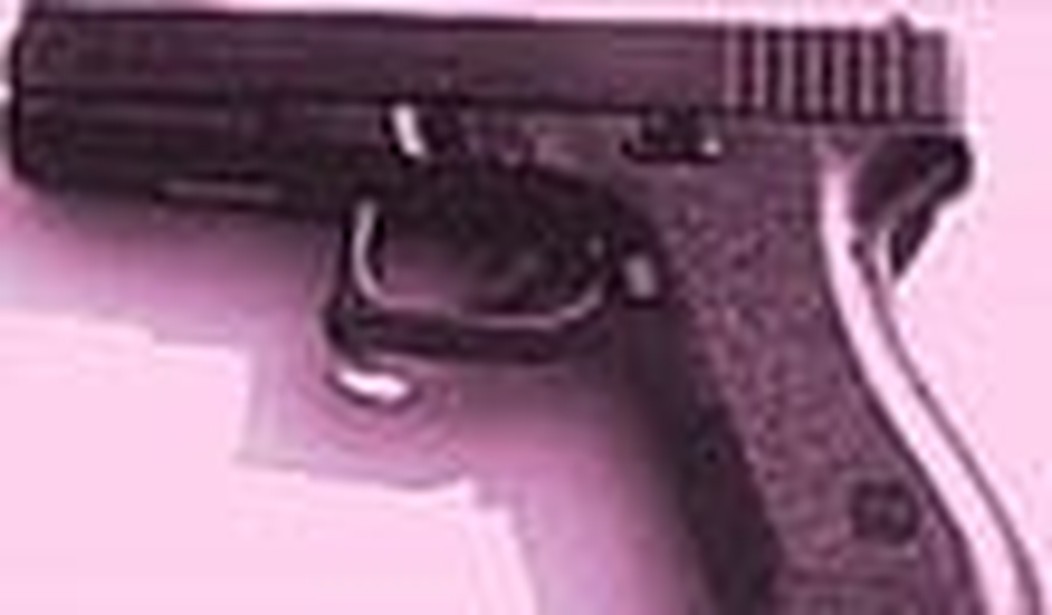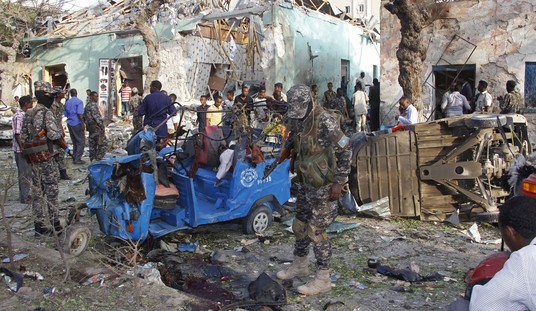Just over two years ago, Jacob Robida, a troubled 18-year-old who lived in a room filled with weapons, Nazi flags, and anti-Semitic writings, walked into Puzzles Lounge, a gay bar in New Bedford, Massachusetts. After presenting a fake ID to the bartender and finishing off a drink, he asked if it was a gay bar.
Upon learning that it was, he ordered a second drink. Then he went to the back of the bar and started swinging a hatchet at bar patrons, striking two. When others tried to wrestle him to the ground, he pulled out a gun and shot one person in the face, another in the head (twice), and a third person in the abdomen.
After fleeing the scene, he was cornered by police in Arkansas, where he shot and killed a policeman and his 33-year-old girlfriend before being shot and critically wounded by officers. He died later at a Missouri hospital.
The situation might have turned out differently had the bartender or a patron brought a handgun to the bar that night. Let’s say that in response to an increase in anti-gay violence, gay groups and individuals like the Puzzles Lounge bartender had joined the Pink Pistols, a group which advocates “gun ownership and training in the proper use of firearms by gay people.” Imagine that after participating in the program offering instruction from the National Rifle Association in the defensive use of firearms, this particular bartender decided to keep a handgun hidden behind the bar. Instead of two people dying and three suffering serious wounds that night, the only person to die might have been Robida. As soon as the bartender realized Robida was up to no good, he could have pulled out his gun and said, “You may think gay people are just pansies who sing showtunes, but unless you drop your weapons, this Colt here will teach you a whole new meaning of ‘Hello, Dolly.'”
It’s not just the line that makes this scenario seem a bit far-fetched. I would daresay that few gay bartenders are trained in the use of firearms. And Pink Pistols appears to be the only gay group which encourages gay people to use firearms for self-defense against hate crimes.
The national gay groups, never eager to be out of sync with the agenda of the American left, would likely not be willing to promote the responsible use of firearms, an issue associated with conservatives and the GOP. I could find no reference to gun rights on the website of the Human Rights Campaign (HRC). In 2004, the National Gay and Lesbian Task Force “expressed concern” that Vice President Cheney was delivering the keynote address at the annual meeting of the National Rifle Association (NRA). Their release included quotes from several groups critical of the NRA and firearms.
These groups didn’t consider the fact that gay people use firearms to defend themselves against hate crimes. Instead of addressing the firearms issue, HRC President Joe Solmonese claimed the attack in New Beford was a reminder of the need for a federal hate crimes law. What he didn’t mention was that Massachusetts, the state where the attack occurred, already has hate crimes legislation on the books.
Indeed, according to the Massachusetts Department of Education, “Hate Violence Should Be Charged Under At Least 3 Statutes,” with the state’s Hate Crimes Penalties Act providing penalties for those who assault a person because of his sexual orientation (among other qualifiers). If those laws didn’t deter Robida, it’s highly unlikely that a federal law would have. But he might have been more hesitant to attack the bar had he known he would have faced a bartender or patron with a firearm.
However, given Massachusetts’s strict control laws, it’s less likely that a law-abiding citizen would possess a firearm. In 1998, the Bay State enacted a law which the Gun Owners’ Action League, a firearms association in Massachusetts, called the “worst in the nation.” (Meanwhile, the Brady Center to Prevent Handgun Violence, a group which advocates gun control, sees that state as “implementing the nation’s strongest gun-safety regulations.”)
The problem with such laws is that they only deter law-abiding citizens from owning firearms. Just as Massachusetts hate crime statutes didn’t prevent Robida from singling out a gay bar for attack, gun laws didn’t stop Robida from acquiring a weapon and using it there.
Massachusetts isn’t the only jurisdiction with strict gun control laws. The District of Columbia also has “an unusually strict gun control law.” That law is currently under review in the Supreme Court in the case, District of Columbia v. Heller.
In its brief in that case, the Pink Pistols notes “the long history of hate crimes and violence directed at the LGBT community” and contends that “for certain LGBT individuals, the possession of firearms in the home is essential for a sense of personal security.” And not just gay people. Countless Americans own firearms so they can feel more secure in their homes.
With studies showing lower crime rates in states that allow individuals to obtain permits to possess concealed weapons, it’s clear that giving law-abiding citizens greater freedom to own firearms means increased opportunities for self-protection. And that’s true for gay people as much as it is for society at large.
To repeat: Gun control laws in Massachusetts did not prevent Jacob Robida from acquiring a gun, and hate crime laws did not deter him from entering a gay bar in New Bedford and shooting several patrons.
Just as citizens of other states have used firearms to protect themselves from attack (particularly in their homes), gay people could use firearms to protect themselves. Indeed, greater respect for gun rights might better protect gay people than hate crimes laws.
There is no evidence that hate crime statutes prevent hate crimes. At the same time, there is evidence that increased levels of gun ownership reduces crime.
If gay activists see hate crimes as a pressing problem in our community, they might better be served not by laws which single out gay people for protection, but by laws which benefit all citizens.
Restrictive gun laws, like the statute at issue in D.C. v. Heller, prevent all law-abiding citizens, including gay men and lesbians, from protecting themselves in their own homes. For the sake of gay Americans — and all Americans — it’s time to repeal restrictive gun control laws and adopt ones which allow citizens to own firearms and use them responsibly.
B. Daniel Blatt blogs at GayPatriot.








Join the conversation as a VIP Member